Books for the Foresight Community: A Futurist's Vacation Reading List
For your summer reading pleasure (or winter, for our friends in the Southern Hemisphere), we offer a sampling of new and forthcoming future-oriented books, plus a preview of coming attractions.
Recent and New:
The Fourth Industrial Revolution by Klaus Schwab (World Economic Forum, Jan. 2016). The latest step forward for industrial processes that have accelerated economic growth (with all the social, environmental, and political impacts such growth implies) is characterized by technologies that merge with human capabilities and, in many ways, supersede them. While acknowledging the great potential of such developments to improve the human condition, World Economic Forum founder Klaus Schwab also warns of disruptions from power shifts, security threats, and increased inequality. Signals: economics, technology, world affairs

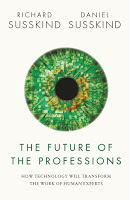
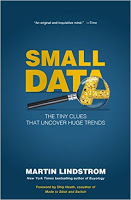
The Future of the Professions by Richard Susskind and Daniel Susskind (Oxford University Press, Jan. 2016). The technologies that make the work of professionals more efficient could eventually also replace such skilled workers as accountants, architects, lawyers, doctors, and teachers. Scholars Richard and Daniel Susskind address critical issues this technological replacement raises, including who should own or manage online expertise, what tasks should be reserved for human professionals, and what the relevance of professionalism will bewhen the prospects for employment in the professions disappear. Signals: expertise, jobs, technology
Small Data: The Tiny Clues That Uncover Huge Trends by Martin Lindstrom (St. Martin's Press, Feb. 2016). As enamored as we all are of big data and the opportunities afforded from mining it, small data, or weak signals, offer savvy businesses and organizations another way “out of the box.” Signals: business, marketing, trends

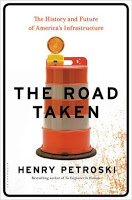

The Industries of the Future by Alec Ross (Simon & Schuster, Feb. 2016). A former innovation adviser in the U.S. State Department, Alec Ross looks at technologies most likely to have major economic, political, and social impacts, including robotics, genomics, cybersecurity, big data, and fintech--financial technologies such as blockchain. Signals: business; technology
The Road Taken: The History and Future of America's Infrastructure by Henry Petroski (Bloomsbury USA, Feb. 2016). An engineering professor whose popular writing has examined both ordinary objects (The Pencil) and extraordinary failures (To Engineer Is Human) here focuses on the potentially devastating consequences of neglecting the mundane (but vital) bridges, roads, pipes, and other structures that literally support our society and economy. Signals: environment, infrastructure
4 Steps to the Future: A Quick and Clean Guide to Creating Foresight by Richard A. K. Lum (Vision Foresight Strategy, March 2016). Professional futurist Richard Lum offers a handy primer for “attention-stressed and resource-deprived” leaders in need of guidance in guiding their organizations to better futures. The simple (but not easy) process covers analyzing the organization's present within the context of current trends, developing alternative scenarios, envisioning desired outcomes, and creating or revising goals. The book includes worksheets, exercises, and checklists. Signals: business, foresight, planning
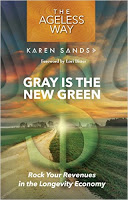

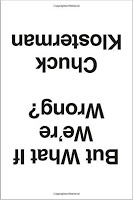
Gray Is the New Green: Rock Your Revenues in the Longevity Economy by Karen Sands (Broad Minded Publishing, March 2016). This slim, self-published volume by “gerofuturist” Karen Sands is a passionately pleaded case for businesses (and particularly marketers) to recognize the economic power and skills still in the hands of baby-boom women. Signals: aging, business, marketing
The Inevitable: Understanding the 12 Technological Forces That Will Shape Our Future by Kevin Kelly (Viking, June 2016). Wired founder Kevin Kelly goes beyond predicting the next big things to analyze the future's potential based on the deeper forces underlying our technological innovation, such as interacting, filtering, accessing, sharing, remixing, tracking, and questioning. Signals: business, technology, trends
But What If We're Wrong? Thinking About the Present As If It Were the Past by Chuck Klosterman (Blue Rider Press, June 2016). Why is “what if we're wrong” a question we want other people to ask themselves, when we're so often reluctant to undertake the exercise ourselves? Journalist Chuck Klosterman reminds us that history is full of shifts of opinion as new discoveries render our cherished beliefs absurd. Among the great “what if” thinkers Klosterman interviews are Neil deGrasse Tyson, Nick Bostrom, and David Byrne. Signals: creative thinking, philosophy, values

You Belong to the Universe: Buckminster Fuller and the Future by Jonathon Keats (Oxford University Press, April 2016). For fans of the perennially inspiring planetary genius (aren't we all?), this overview of Bucky Fuller's life and work offers lessons from the unconventional thinking and comprehensive vision that created dymaxion houses and cars and the geodesic dome, among other innovations. (ETA 6-11-2016: see review in New Scientist, "How Future-Proof Are the Ideas of Buckminster Fuller?") Signals: biography, creativity, design, genius
BOLO--be on the lookout for these forthcoming titles:
Small Is Powerful: Why the Era of Big Government, Big Business and Big Culture Is Over by Adam Lent (Unbound Digital, Amazon Digital Services, June 30, 2016).

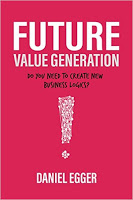

Future Value Generation: Do You Need to Create New Business Logics? by Daniel Egger (Amazon Digital Services, July 1, 2016).
Lean Logic: A Dictionary for the Future and How to Survive It by David Fleming (Chelsea Green, July 29, 2016).

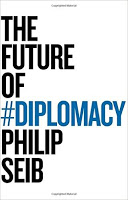
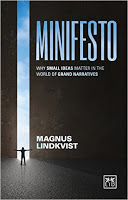
Selling the Future: The Perils of Predicting Global Politics by Ariel Colonomos (Oxford University Press, Aug. 15, 2016).
The Future of Diplomacy by Phillip Seib (Polity, Aug. 22, 2016).
Minifesto: Why Small Ideas Matter in the World of Grand Narratives by Magnus Lindkvist (Lid Publishing, Sept. 6, 2016).
And we won't want to miss the three volume study of the work and life of pioneering futurist Elise Boulding (1920-2010), edited by her son, environmental scientist J. Russell Boulding:
Elise Boulding: A Pioneer in Peace Research, Peacemaking, Feminism and the Family: From a Quaker Perspective (SpringerBriefs on Pioneers in Science and Practice, Springer, Sept. 17, 2016).
Elise Boulding: Writings on Peace Research, Peacemaking, and the Future (SpringerBriefs on Pioneers in Science and Practice, Springer, Sept. 15, 2016).
Elise Boulding: Writings on Feminism, the Family and Quakerism (SpringerBriefs on Pioneers in Science and Practice, Springer, Sept. 15, 2016).
We'll have more books to preview at the end of the year, we promise! Authors and publishers, send announcements and review copies of your forthcoming future-oriented titles to Foresight Signals editor Cindy Wagner.

